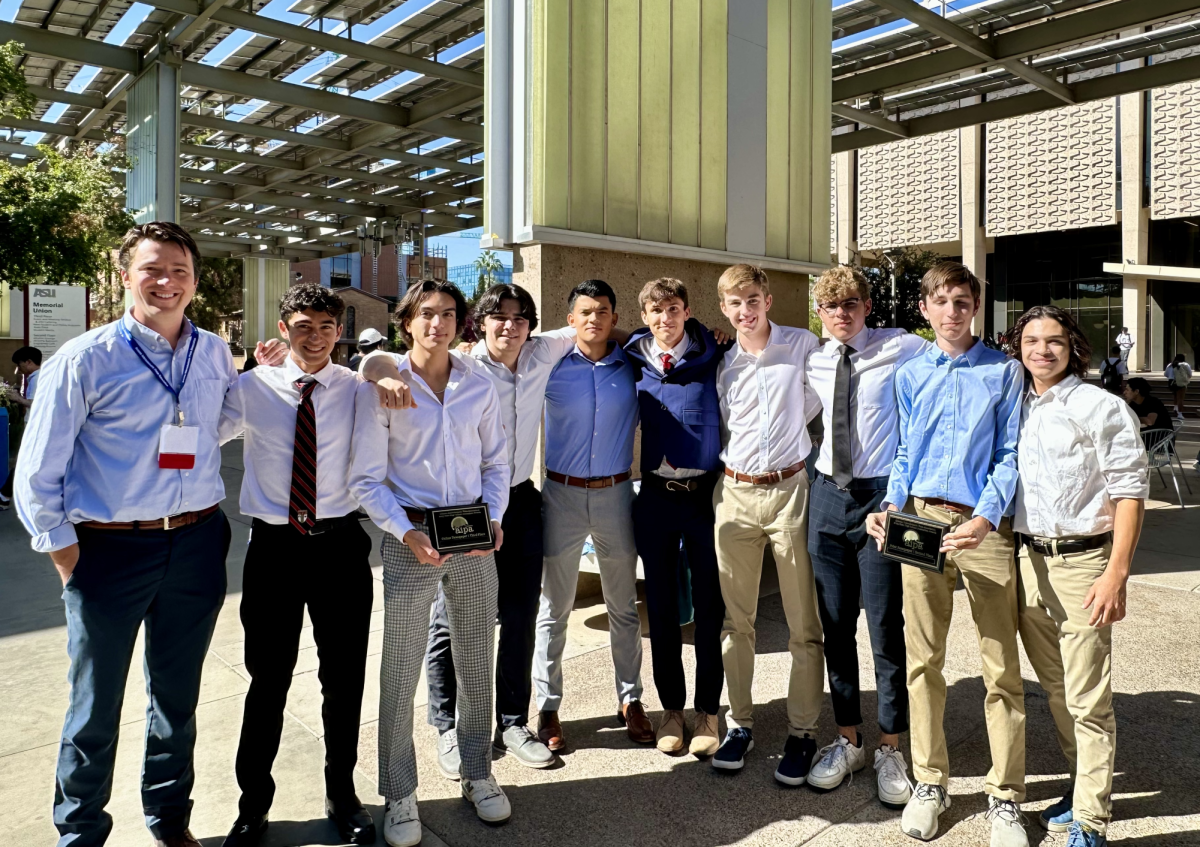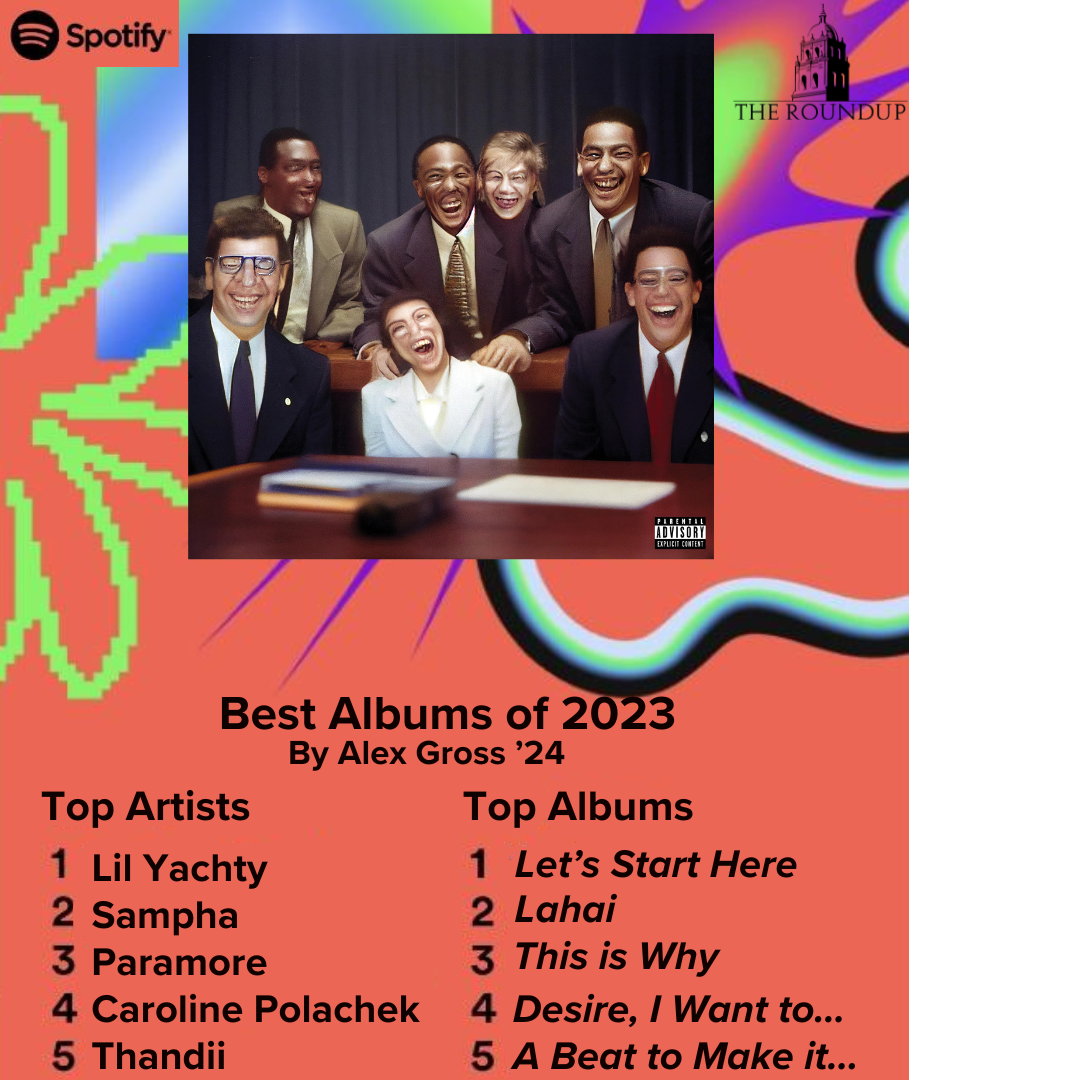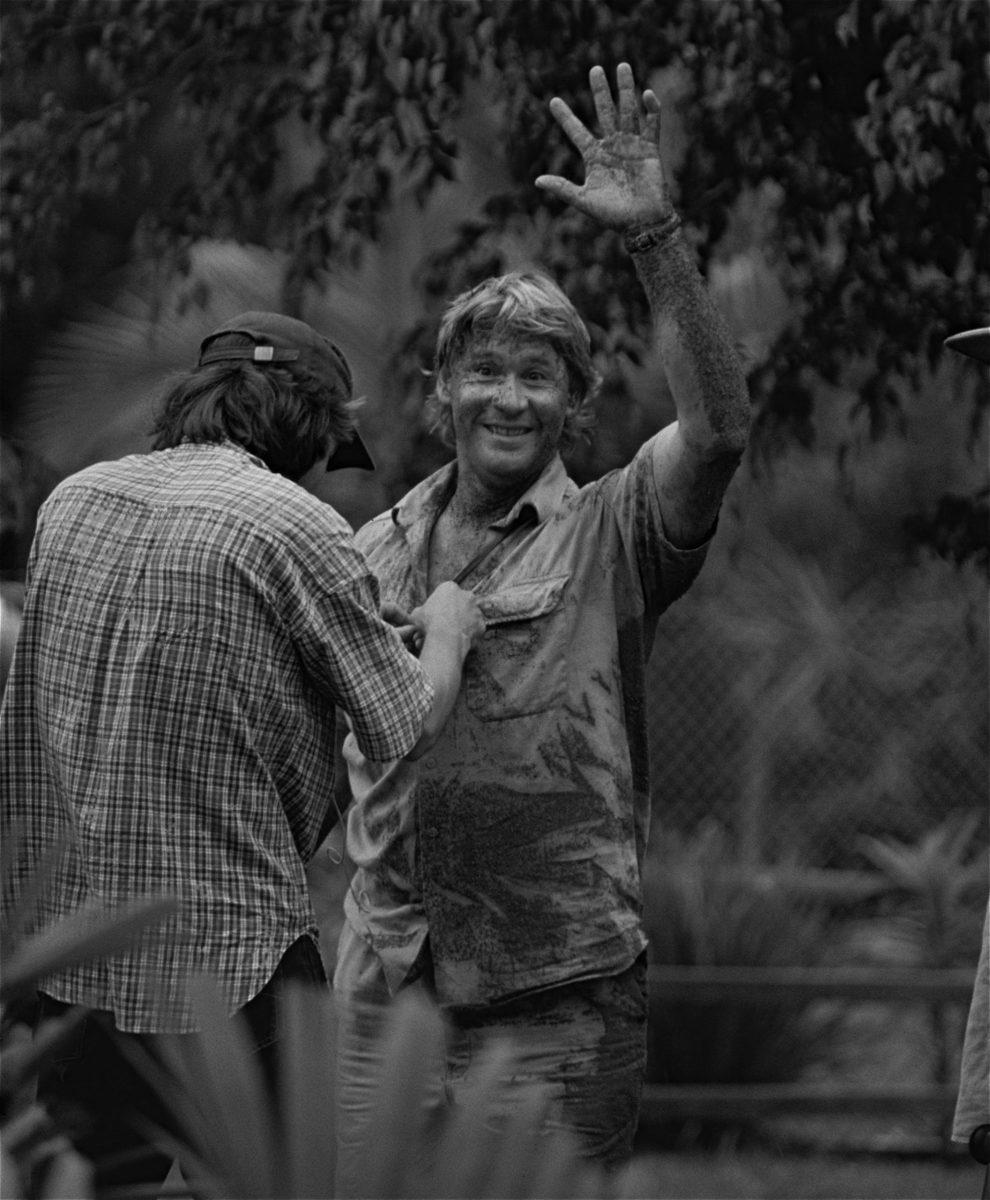Photo courtesy of Bernard Dupont | Steve Irwin, the Crocodile Hunter, waves to a crowd after performing an educational performance with a crocodile at the Australia Zoo.
By Jackson Moran ’19
THE ROUNDUP
For over fifty years, children’s television has had a Renaissance with programming directed towards children diversified to include nature shows, educational shows and purely fun based programming.
Lessons instilled in our malleable child brains by the hosts of these shows, such as Steve Irwin, Fred Rogers, Jim Henson’s muppets and LeVar Burton of “The Reading Rainbow,” stay with us and provide fond memories of early childhood.
Sesame Street, featuring Jim Henson’s muppets, has been a staple of childhood programming since 1969.
Generations of people all over the world can call back to watching Sesame Street on public broadcasting channels, with it now airing on HBO, but previously on PBS as a morning educational show for young kids.
Sesame Street dramatically impacted children’s programming, which was previously filled with violent cartoons such as “Loony Toons” and “Tom & Jerry.”
Jim Henson’s muppets were pivotal in making the connection to kids, as characters like Big Bird, Bert and Ernie, Cookie Monster and Elmo were appealing to the child eye and related to them easily.
Another show that came to prominence in the late 1960s was “Mister Rogers’ Neighborhood,” which officially aired in 1968.
Another PBS masterpiece, “Mister Rogers’ Neighborhood” was able to reach substantial audiences with messages of acceptance, tolerance, love and education during the most volatile years in American history.
In this show, Fred Rogers played the part of your neighbor, always wearing a cardigan sweater and sneakers, and shared important lessons, such as the importance of play in childhood.
Often travelling to the Neighborhood of Make-Believe, he was able to illustrate his messages in an engaging, fun way that appealed to kids.
“Won’t You be my Neighbor,” the show’s featured song strikes a nostalgic chord with all adults who grew up watching the show, each person able to share fond memories of being Mr. Rogers’ neighbor.
Reruns and VCR tapes of “Mister Rogers’ Neighborhood,” left over from parent’s childhoods, have made their way into our generation’s formative years, making Rogers’ impact lasting in American culture.
Steve Irwin, the Australian environmentalist, zoologist and nature television personality instilled a love of nature and an appreciation for animals through his characteristic enthusiasm on his Animal Planet show, “The Crocodile Hunter.”
Irwin’s show, which aired from 1997 to 2007, was a staple of Saturday mornings, with Irwin enthusiastically showcasing animals in Australia and across the world.
Another important aspect of his show, which he conveyed to kids and adults, was the need for conservation and environmental activism on behalf of animals.
Irwin’s unique way of displaying animals and their behavior, both in the Australia zoo and in the wild, captivated audiences and made him one of the most interesting and enjoyable people to watch.
His ministry to kids was especially important, as he made appearances on many different children’s programs such as the movie “The Wiggles’ Wiggly Safari,” in which he and the popular children’s band The Wiggles, explored animals and their important roles in ecosystems.
Levar Burton was the host of “The Reading Rainbow” for over 20 years, with the show first airing in 1983, and the final episode in 2006.
The show’s premise and goal was to get kids excited about reading, through presentations and readings from other celebrity guests.
The show’s format made reading fun, as it brought stories to life and made pages and words into a television show.
After the reading, Burton would take the audience through a kid friendly exploration of the themes of the book, not unlike those seen in English classes at Brophy.
Finally, Burton would have other kids bring their recommendations to the audience, bolstering audiences for books and support for public libraries, especially in the 1980s and 1990s before the rise of the internet.
Many people will remember watching “The Reading Rainbow,” whether it be reruns or new episodes, and begging for the books presented in that episode, even asking to go to a public library to check out fun stories.
Burton’s work after the final episode is just as impressive and heartwarming as the service he did for children on the TV set.
In 2013 he launched a “Reading Rainbow” app, which, through the help of numerous donations, allowed him to bring digital reading to thousands of classrooms and students across the country.
The kind, gentle demeanor of these celebrities, and the way they brought messages of acceptance, is what is missing in today’s children’s shows, and even the media climate witnesses by children.
Children’s shows now encompass the sitcom or reality show, rather than an educational or morally centered format.
People such as Mr. Rogers, Steve Irwin and Levar Burton have been replaced with Disney sitcom stars such as Miley Cyrus, Selena Gomez and Cole and Dylan Sprouse.
YouTube as well has given kids the negative influences of Jake Paul, Tana Mongeau and Bryan Le also known as Ricegum.
These YouTubers use clickbait titles and thumbnails in order to draw kids into their videos that expose kids to explicit language, hostile messages and questionable actions.
Jake Paul is known for attracting negative attention for his wild, pugnacious attitude and irreverent approach to content making.
Often times children partake in their promotion of hypebeast culture, the antithesis of Mr. Rogers’ narrative of acceptance and simplicity.
These new age stars often show utter disregard for the messages that children’s programs of the past attempted to bring into the mainstream.
Each young child could use some of Mr. Rogers’ gentleness, Irwin’s compassion, Henson’s creativity and Burton’s curiosity, and it is surely a shame that these voices are no longer prevalent in today’s media.
The work of celebrities catering to children has been incredibly impactful on shaping the minds of generations of children towards just decision making, acceptance of new ideas and love of the things that connect all human beings.























